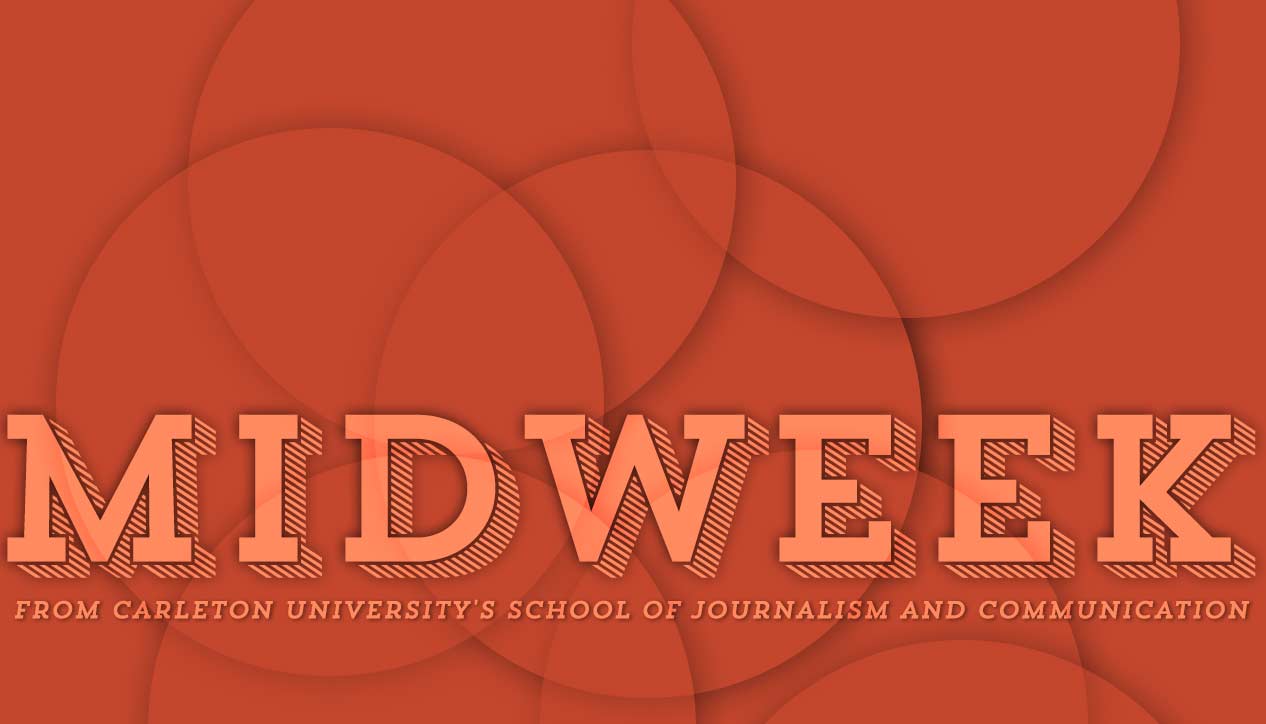Midweek
Wednesday November 9th, 2022 with Sophie Kuijper Dickson and Mariana Tawil
Fall 2022 - Episode 6 (Remembrance Day Special)
What we on the Midweek team love best about our job is the freedom we have to chase the stories we choose each week, which means a single show might range from federal inquiries to goat yoga, with stops along the way for the tragic, the thought-provoking and the comic.
But there are times when focus is needed, and Midweek does that each year in early November with our Remembrance Day Special, a full show devoted to stories about war and other conflicts, loss and rebuilding, lessons learned and those that still need learning, and — most importantly — the people who have experienced first-hand what all this means.
Going to air just two days before Remembrance Day, we opened with a rundown by reporter Sam Konnert about ceremonies and other events around Ottawa to mark the day or linked to it. Sam then continued by interviewing an urban planner about the key role that monuments play in cities, and how well Canada’s capital handles its.
Midweek’s Lahari Nanda then took us through the story of the 600 Chinese-Canadian soldiers who fought for this country in the Second World War — and the way they had to fight for the right to do that for a country that had shut them out of so much of civic life.
Tavneet Dhillon spoke with an historian about how the current bubbling up of antisemitism comes with ominous echoes of the past. Then Sam Konnert was back, interviewing a Ukrainian student in Carleton University’s master of journalism program about how he’s inspired by the generation of young reporters in his country who were suddenly thrust into the role of war correspondents in their own land.
Sometimes, though, we have a choice — and Midweek’s Sophie Kuijper Dickson took us deeply into the life of a man who made a choice half a century ago, giving up his life in Kentucky because he refused to be drafted to fight in Vietnam.
That’s Rob Wills in the picture above, outside the off-grid home he built in Pontiac, Que., and has lived in for more than thirty years. He told Sophie that the years since then haven’t been easy, but he felt he had to do his duty, come what may — and sometimes our duty is to not obey what we believe to be wrong.
We then zoomed back out from one man’s story to the ebbs and flows of history. Caitlin Redmond spoke with Aaron Ettinger, an international relations researcher and assistant professor at Carleton, about changing patterns of remembrance of wars over the past century and the dangers of war myths.
Tavneet Dhillon reported on how the contributions of armed forces families shouldn’t be forgotten, and Lahari Nanda spoke to an actor and musician who’s in a play at the National Arts Centre based on wartime letters that flowed both ways between Canadians during the Second World War.
Remembrance Day brings people of different generations, different backgrounds and different kinds of emotions together at ceremonies and events, so Midweek’s Ora Massabuau had the intriguing idea to ask etiquette expert Julie Blais Comeau for advice on how to interact sensitively and not accidentally cause offence.
Increasingly low recruitment into the Canadian armed forces is forcing a rethink of both policies and organizational culture, including opening enlistment to permanent residents who aren’t yet citizens. Midweek’s Lilian Fridfinnson asked Dr. Grazia Scoppio, a professor of defence studies at the Royal Military College of Canada, what this may mean.
Canada’s relationship with Indigenous people has been fraught on pretty much every front, so it’s no surprise that military service and war would also be places where dealings were plagued by bad faith and betrayal.
Midweek’s Spencer Nafekh took us to an event at a local school where he found out more about the proud service of Indigenous veterans, the promises made to them that weren’t kept, and long-delayed steps now being taken to make up for those past wrongs.
And to close, we returned to where we began: to monuments … but one that’s very different from the imposing columns of stone and bronze that are focal points in cities.
Midweek reporter Will Smith went to a side-street in Vanier to meet with Ray Hotte, the sergeant-at-arms at Royal Canadian Legion Branch 462, to find out about the collection he’s been building over the past year of photos showing the faces of men from Vanier who were killed in the First and Second World Wars and the Korean War.
He explained to Will that he wanted those men to be more than just names — wanted them to have faces we could look into.
“It will be good for the people to know who really gave their lives, you know?” was how Ray Hotte expressed it to Will.
And thus ended our show — a memorable one for the Midweek crew for lots of reasons, but especially because of the people it gave us a chance to meet as we put it together.
If you find this one as meaningful as we did, you may want to visit our past Remembrance Day specials; here are links back to 2021, 2020, 2019, 2018, and 2017.
There are no tracks in this playlist.


 Subscribe to Midweek
Subscribe to Midweek